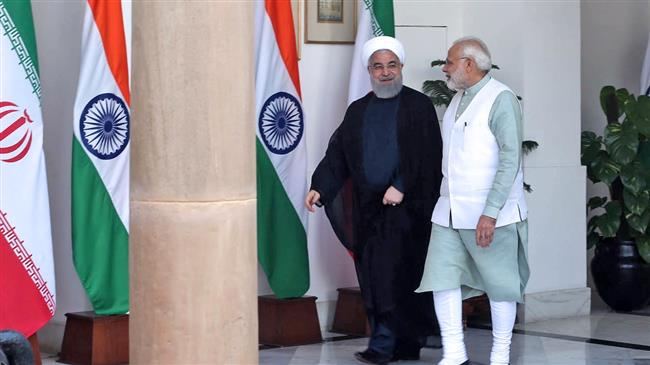India drops ‘retaliation’ mode to buy more Iran oil


State-owned Indian refiners are set to raise their oil purchases from Iran amid unconfirmed reports that the Iranian Ministry of Petroleum had offered 100% discount on its freights.
President Hassan Rouhani’s visit to India this week gave a new impetus to enhancing bilateral relations which are under the shadow of US threats to reimpose draconian sanctions on the Islamic Republic.
India was one of the countries which maintained trade with Iran including oil purchases when Tehran came under intensified Western sanctions in 2012, but that came with generous discounts.
Since the lifting of sanctions on Iran in 2016, Tehran had reportedly cut down on its freight discount but Iranian officials offered last week to raise it if Indian companies purchased more oil from the country.
For 2018, Tehran had reportedly reduced the discount to 62 percent of the Platts freight assessment from 80 percent, apparently in response to the Indian government’s orders to refiners to import less oil from Iran.
Those orders have been interpreted as New Delhi’s retaliation for Tehran’s refusal to grant development of the offshore Farzad B gas field in the Persian Gulf to Indians at steeply concessionary terms.
On Saturday, officials in the Indian Ministry of External Affairs said the two sides agreed to continue and increase the pace of negotiation for reaching appropriate results in energy cooperation, including on Farzad B and that they were for reaching a conclusion on the gas field issue soon.
Iran’s Minister of Petroleum Bijan Zangeneh told reporters after a meeting with Indian Oil Minister Dharmendra Pradhan in New Delhi that India’s state-owned companies were going to increase their level of Iranian oil purchase.

Zangeneh said both state-owned and private Indian refiners will buy about 500,000 barrels per day (bpd) of Iranian oil in 2018. Indian imports of Iranian oil through January to April in 2017 averaged 442,800 bpd, which were about 17 percent less than those in the corresponding period a year before.
Pradhan said Indian companies were about to raise imports from Iran in 2018. “We have got good incentives compared to other major producers. We will get benefit if we buy from Iran … We will boost oil imports from Iran compared to this fiscal year,” he told reporters.
Reuters quoted an unnamed Indian official as saying that Iran’s Ministry of Petroleum was offering 100 percent discount, meaning a sum equivalent to 105 percent of the Platts freight assessment.
Zangeneh on Saturday said he was “very optimistic about the future of the relationship between the two countries and our companies, especially for developing oil and gas fields”.

An Indian delegation is to visit Tehran this week to see data on some fields after Pradhan said India had sought a stake in Iran’s South Azadegan oil field.
The two countries have just signed 15 agreements, including Tehran leasing to New Delhi operational control of part of the Iranian east coast port of Chabahar for 18 months.
India and Iran have a mutual interest in developing relations. While Iran seeks to use foreign investment as a buffer against fresh US pressures and to revive its economy, India hopes to utilize Iran’s transit potentials to embolden its connectivity footprints.
While Iran seeks to use foreign investment as a buffer against fresh US pressures to revive its economy, India hopes to utilize Iran’s transit potentials to embolden its connectivity footprints.
However, this has to be weighed against a fresh push by US leaders to dissuade countries from engaging in trade with Iran.
India has also other major oil suppliers in Iraq and Saudi Arabia which has been trying to keep Iran out of the market with discounts of its own.








